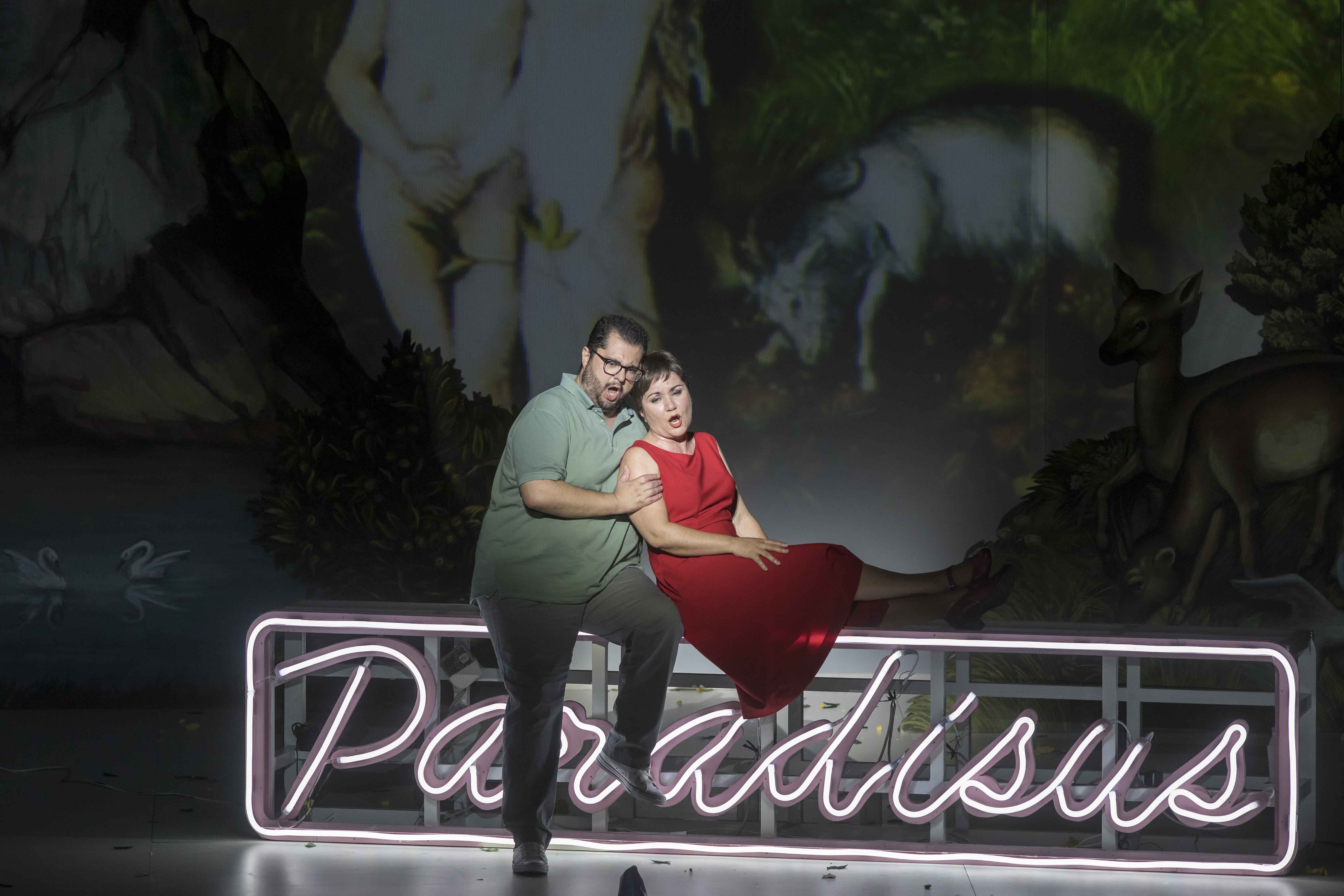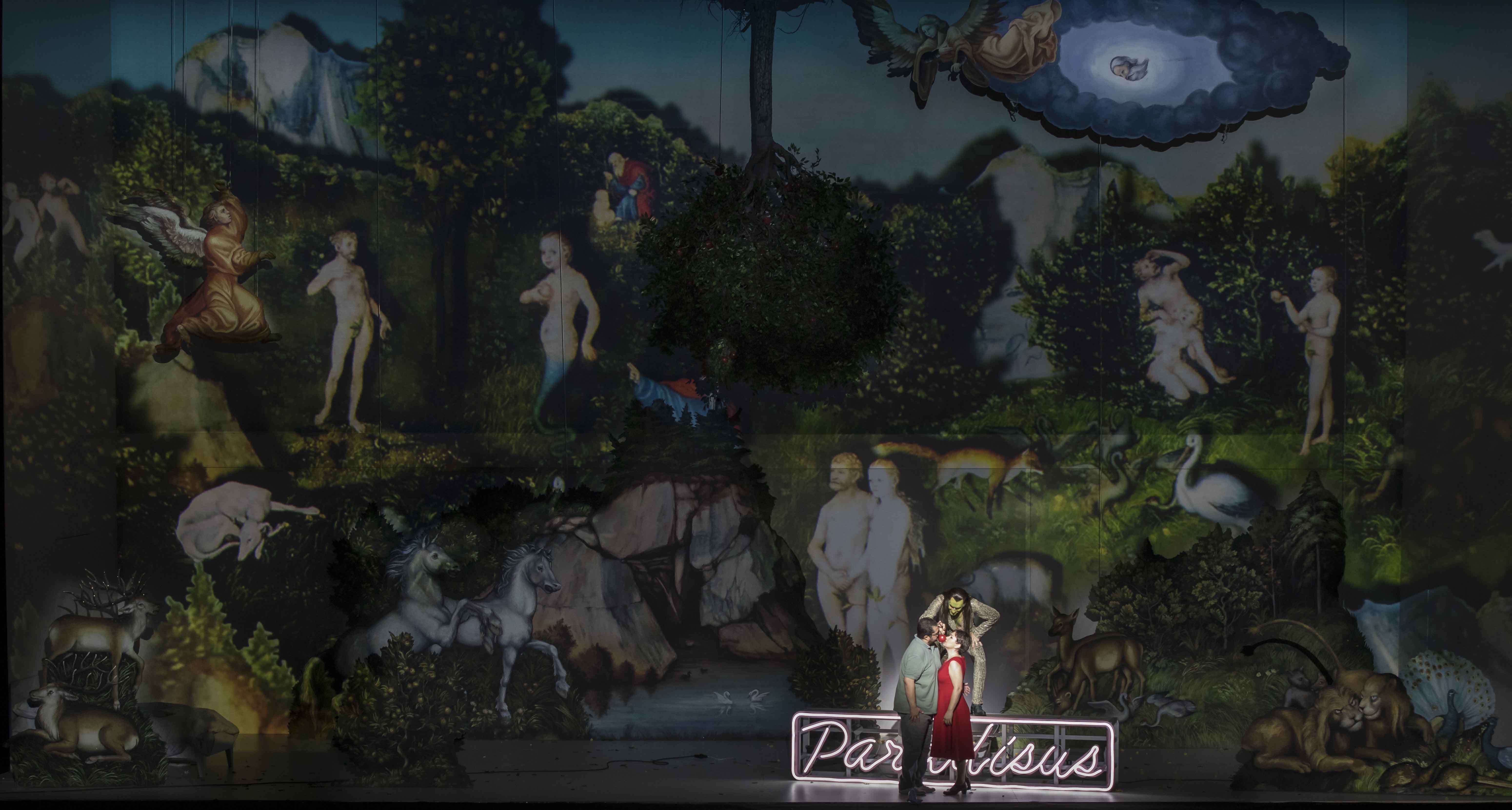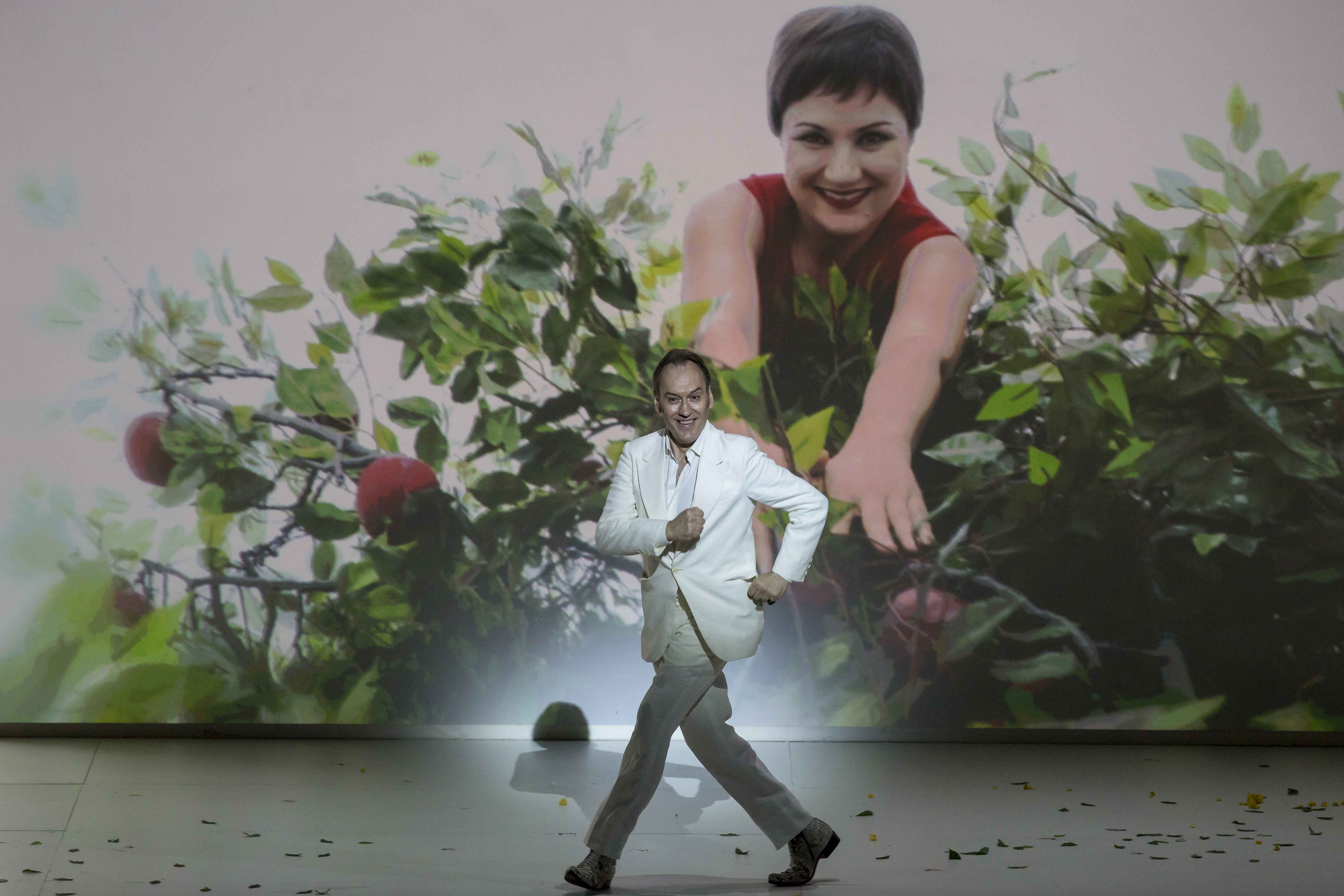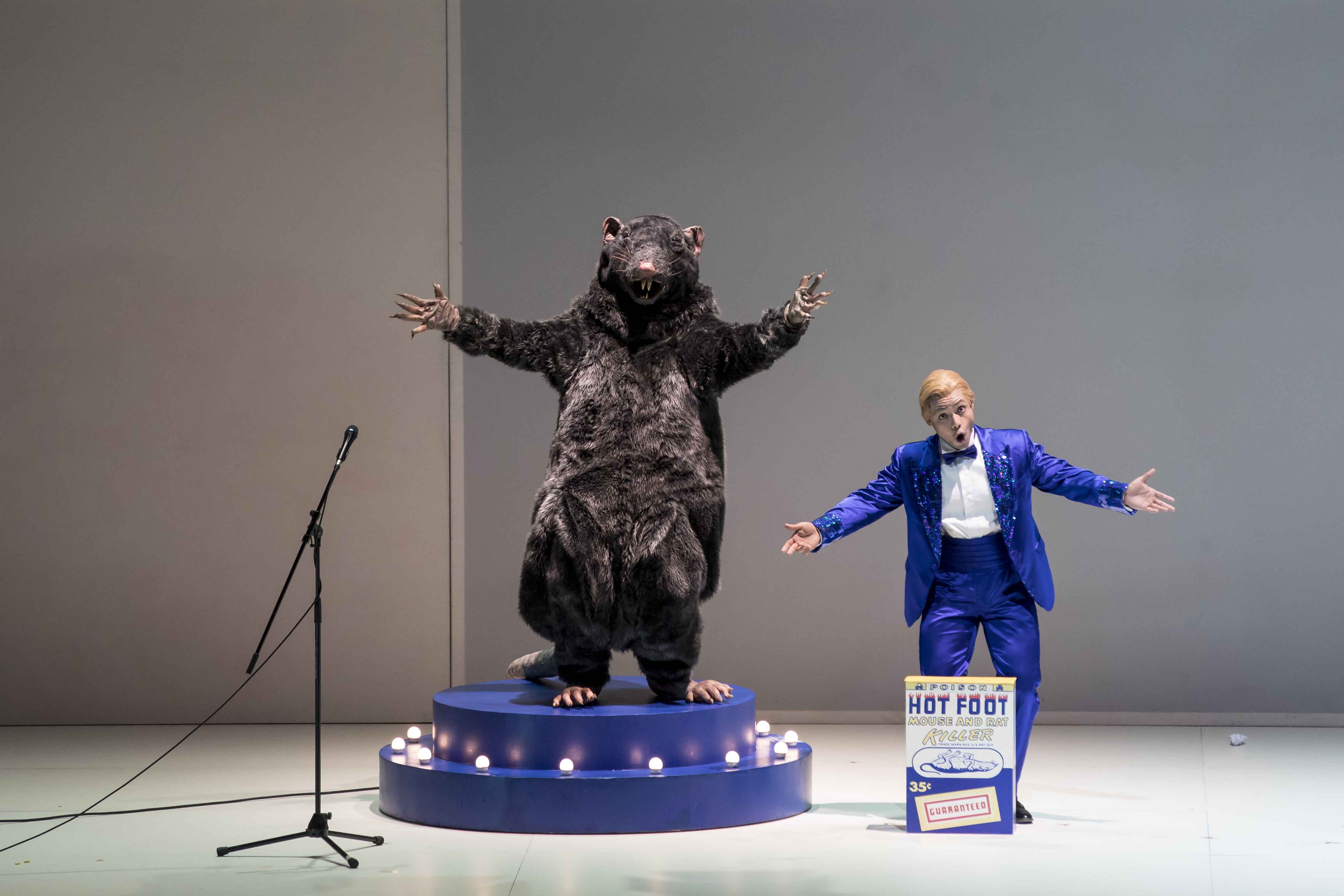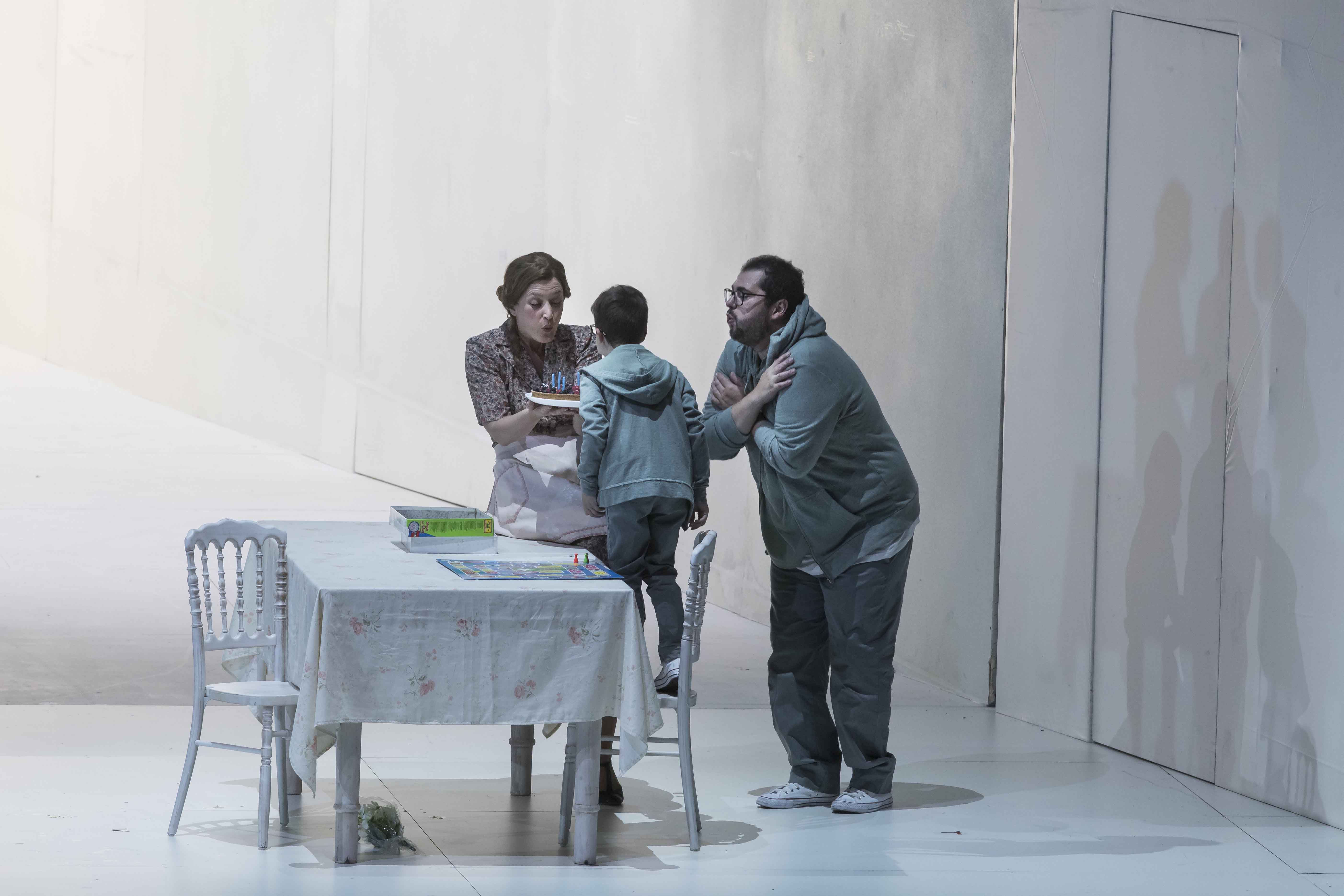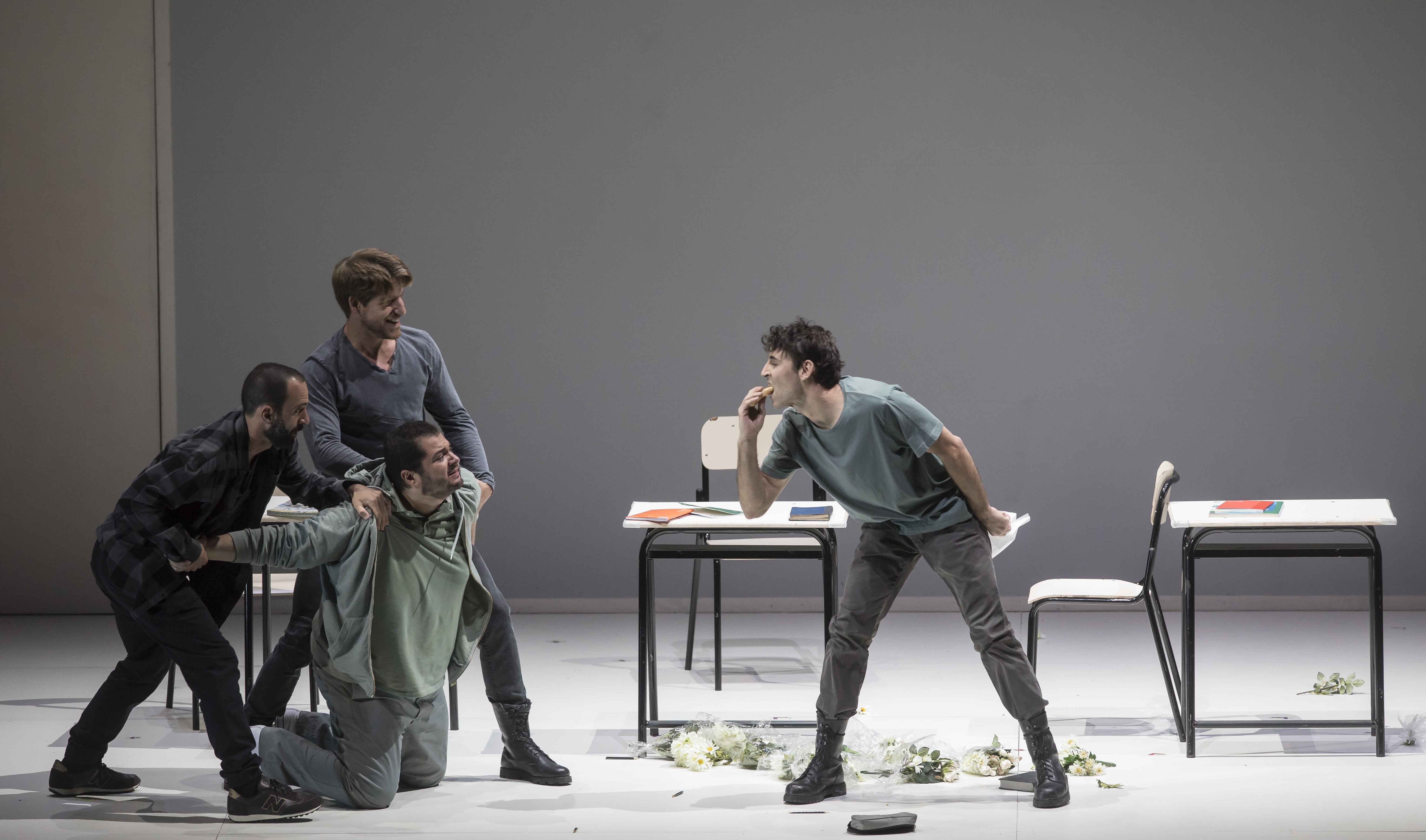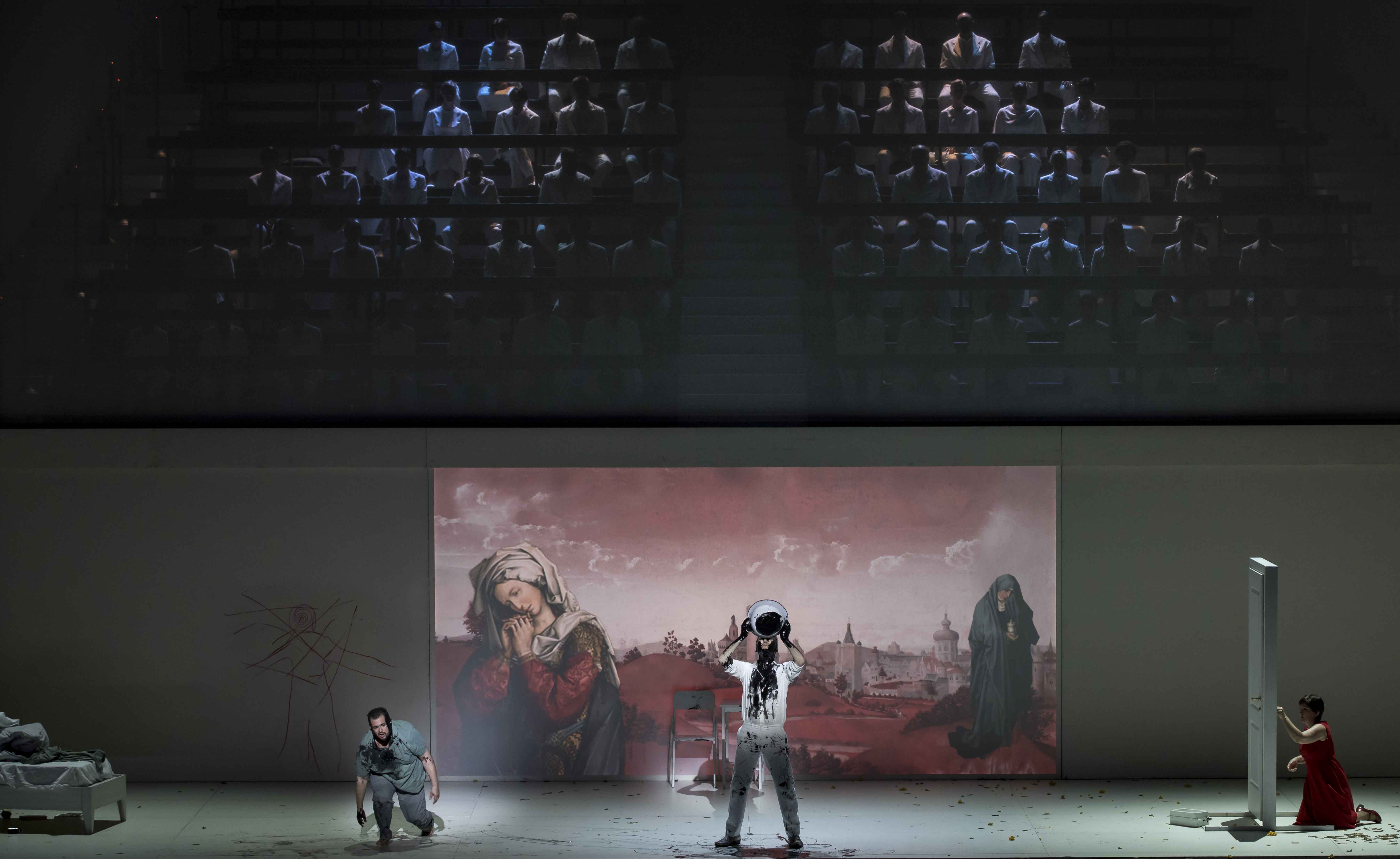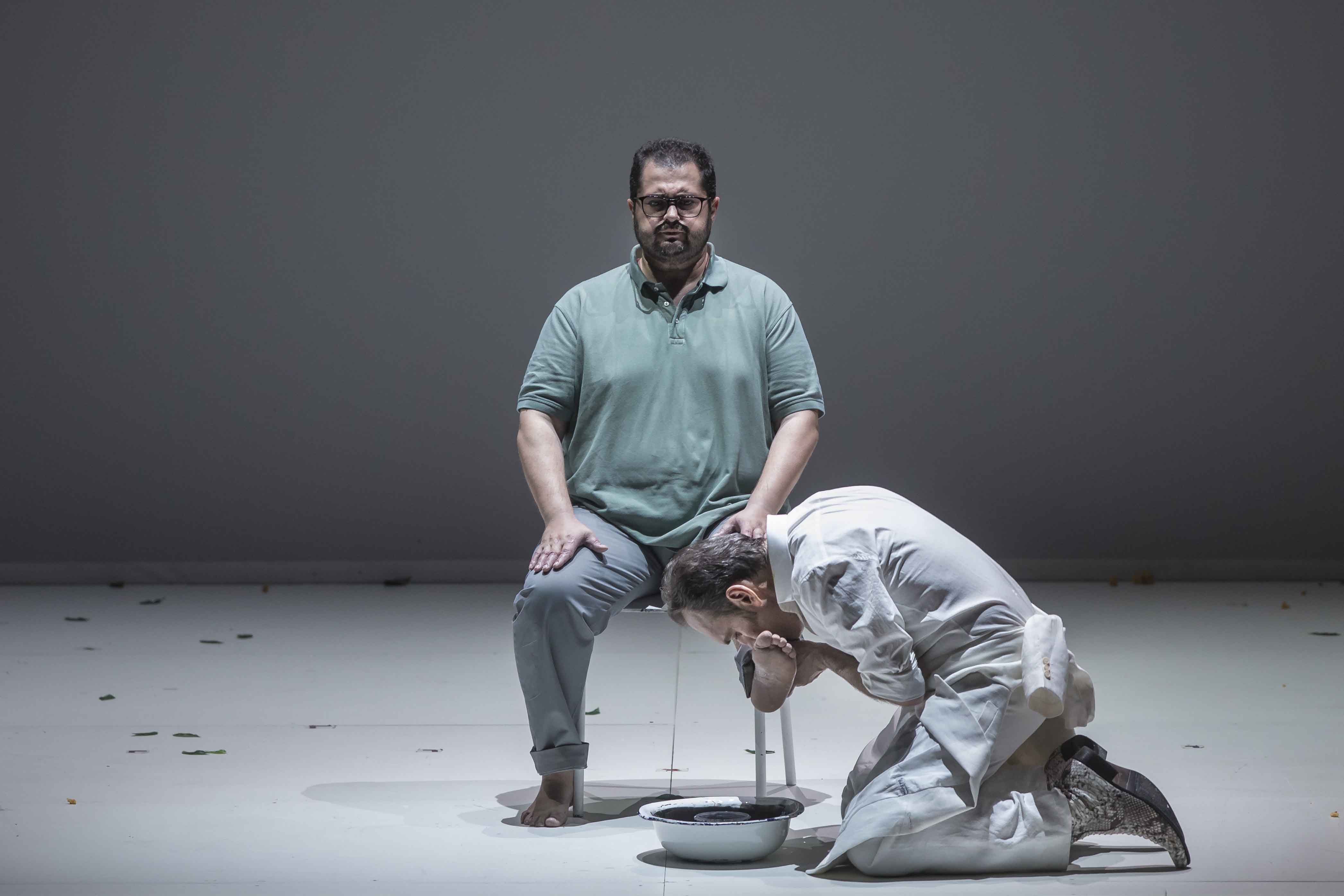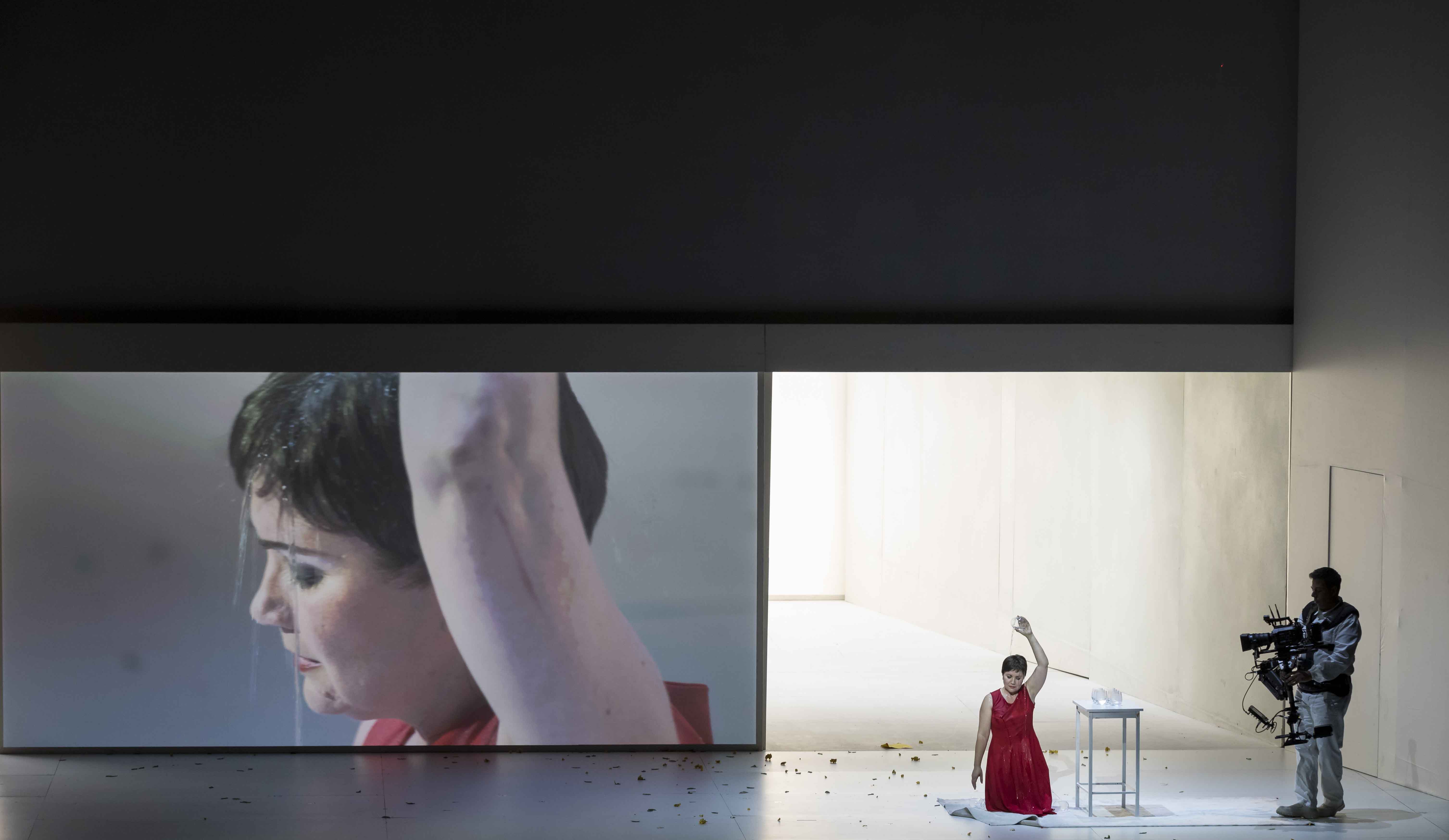Conductor
Roberto Abbado
Stage Director
Damiano Michieletto
Set Designer
Paolo Fantin
Costume Designer
Carla Teti
Lighting Designer
Alessandro Carletti
Videocreator
Roca Film
Mime movements
Chiara Vecchi
New co-production
Palau de les Arts, Teatro dell’Opera di Roma, Teatro Regio di Torino
Escola Coral Veus Juntes de Quart de Poblet
Roser Gabaldó, Míriam Puchades, chorus masters
Escolania de la Mare de Déu dels Desemparats
Luis Garrido, chorus master
Cor de la Generalitat
Francesc Perales, chorus master
Orquestra de la Comunitat Valenciana
Faust
Celso Albelo
Méphistophélès
Rubén Amoretti
Marguerite
Silvia Tro Santafé
Brander
Jorge Eleazar Álvarez *
* Centre Plácido Domingo
The damnation of Faust, or the fascination of two suicides.
Goethe’s Faust — a work and a protagonist with as many interpretations and facets as the most precious diamond — had already inspired many of the most renowned composers in Hector Berlioz’s nineteenth century. Two examples are the operas, both entitled Faust, by the German composer Louis Spohr and the Frenchman Charles Gounod. The former gives the character a more orthodox treatment while the latter emphasizes the more human element of the role. In the field of symphonic-choral music, the German composer Robert Schumann was more interested in the mystical character of the protagonist in his Szenen aus Goethes Faust (Scenes from Goethe’s Faust), while in the last years of the nineteenth century, Arrigo Boito delved even deeper into the philosophical component of the subject in his opera Mefistofele.
Nevertheless, the attraction Hector Berlioz felt for the fantastic side of Faust, imbued as it is with supernatural elements, fits neatly with the deeply romantic spirit of the French composer, which was already evident in 1828, when he first read Goethe’s play. Berlioz, who gave us many examples of his obsession with death and suicide in his life and work (one is reminded of his autobiographical piece Lélio), found in Goethe an intimate spiritual companion. This sense would be further enhanced by the French translation of the libretto by the romantic poet Gerard de Nerval, a kindred spirit of the composer, who would end his own life.
Berlioz sketched out a rough idea as early as 1828, when he composed a collection of songs called Huit Scenes de Faust. This became the germ of the idea for the legendary dramatic and choral piece, La damnation de Faust, which really began to take shape twenty years later, namely in 1845, during a concert tour in Austria, Hungary, and Bohemia. To the Hungarian march included in the opera, other inspired sections would be added during the journey through central Europe. Marked by memories of the places in which he had composed the piece, Berlioz finished the opera in the urban setting of Paris. The libretto brought together texts from Nerval’s original version, used in Huit Scenes de Faust, with new texts written by Almire Gandonnière. However, the majority of texts were written by Berlioz himself, given as he was to the Wagnerian idea of the poet-composer.
Part I
Doctor Faustus has spent his life amassing an immense corpus of knowledge of the world, but he is filled with an intense sense of loneliness. He witnesses both the joyful songs of the peasants upon the coming of spring along with the courage of the Hungarian soldiers as they march into battle, but in neither case is he able to share in these deep emotions.
Part II
Alone in his laboratory, Faust decides to end his life by poisoning himself. Upon hearing an Easter hymn, however, he stays his hand. Mephistopheles appears, ridiculing Faust’s feelings and offering him the opportunity to return to his youth to fulfill the desires he has not been able to enjoy during his long life. Faust accepts and in the blink of an eye the devil and the rejuvenated doctor find themselves in a tavern in Leipzig, where they drink wine and engage in general merry making. Finally, weary of carousing, Faust asks Mephistopheles to take him away from there, whereupon the devil brings him to the banks of the Elbe river. There, cradled by sylphs and gnomes, Faust dreams of the beautiful Margarita. When he awakes, he asks the devil to arrange a meeting with her. Mephistopheles assents and the two go to meet her.
Parte III
Night has fallen. Curfew bells ring in the city. Hidden in Margarita’s bedroom, Faust and Mephistopheles await the arrival of the young woman, whom Faust then observes as she combs her hair before going to bed. Out in the street, the devil orders his elves to bewitch Margarita’s heart with their dances. The young woman discovers Faust in her room and is shocked to recognize the man she has seen every night in her dreams. Driven by desire, they give in to their passion, but are interrupted by Mephistopheles. He separates the couple, warning them that the neighbors have alerted Margarita’s mother of Faust’s presence in the house. They part tearfully, renewing their vows of love while the devil mocks the weakness of the enamored doctor.
Part IV
Margarita despairs at Faust’s absence; after numerous nights of love-making, he has stopped coming to her room. In a grotto, Faust sings to the forces of Nature, upon which Mephistopheles reminds him of Margarita’s woes: the young woman has been taken to prison, accused of murder after giving her mother a potion to make her sleep so that the lovers can indulge in their passion. Faust, feeling responsible for Margarita’s misfortune, asks Mephistopheles to save her. Mephistopheles agrees to help in exchange for Faust’s soul. Faust accepts the condition and both depart on horseback to the prison, but the nearer they get, the stranger the surroundings become, vaporous and full of demons. Faust realizes that he is being brought to Hell, where Mephistopheles is acclaimed for his triumph.
Epilogue
The chorus of the condemned gives way to the celestial songs that welcome the soul of Margarita, who has been saved by her pure and innocent love.
©Miguel Lorenzo / ©Mikel Ponce
